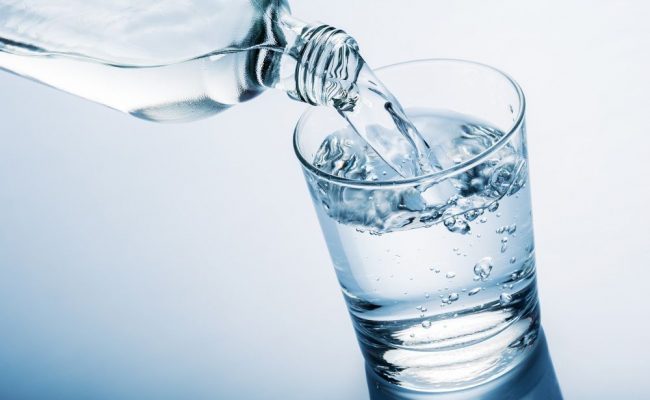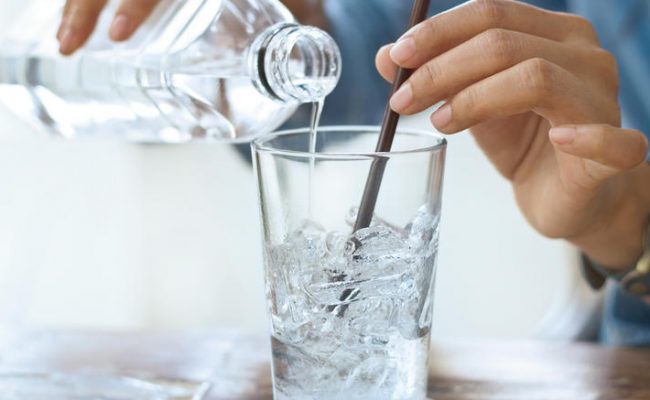
Which are the best foods and drinks that aid faster muscle recovery? What is the role of a diet in the recovery process and how to take advantage of it.
In a current hydrotherapy session I found myself in the same pool with an Olympic rower. To my surprise I couldn’t quite see the rip body of ‘steel’ I expected or the lean and defined abs. After a polite interrogation I found out that although the twice a day training regime was rather demanding, he had really bad eating habits which included pre-prepared meals, takeaways etc. So diet does play a major role regardless of the amount of training and this is a really good example to showcase the point.
Diet will affect the body and it can be complementary to training. So the right foods could improve the body’s recovery and return the desirable outcomes. To this point it must be added that what is desirable will depend of course on what an individual wants to achieve and thus what diet he/she follows will be accordingly dependant on that. Therefore, there is no magic recipe to fit them all.
A starting point is the recovery period. This is the time in which the body will work into replenishing nutrients lost and make any adaptations needed. So you worked out hard, you have hormones going for breaking down and building up, may be some muscle damage, nutrients used such as sugar and fat and so on. This is a golden opportunity to manipulate results and as a start we will concentrate on muscle recovery. Which foods and drinks will aid recovery?
1. Whey protein shakes and smoothies.
Protein is no 1 for muscle recovery. Whey protein shakes and smoothies are a good way to ingest protein fast and easy. You can make them as simple or as complicated as you like and they can make a tasty snack.
Powder whey protein may be better quality than pre-prepared shakes. Always look at the ingredients and content before buying and aim for high quality ones. Quality of protein does play a big role in how it gets processed in the body and what results you get out of it. If you are not sure what you are looking for in general aim for a large number of branched chain amino acids (building blocks of protein). The more of the essential kind it has the better.
Also look for information of where it comes from and how has it been regulated. All these supplements are not so well regulated if not at all to be honest. For a lot of the dietary supplements in the market quality and safety may be questionable. Especially if you are in professional sports you don’t want to find yourself having taken drugs which are not permitted. It may best to buy a specific protein supplement rather than a general protein shake or multi-supplement.
For added benefits mix the protein with dairy such as milk or yogurt. Dairy contain a protein called casein. Studies have shown that casein can help in muscle recovery. Avoid if you are allergic to dairy or cow derive products.
Also read: Are there any side effects of protein powders?
How to make your own whey protein shake
Recipe:
Juice 3 carrots and 1 orange.
Mix in a blender with ice (optional)
1 banana and
2 scoops of whey protein powder (or the equivalent amount dictated by specific product instructions).
This is a really tasty and filling shake packed with energy. It is one of my favourites for pre-workout drinks and easy to make. Downfall you need a juicer for the carrots and is not quite the same without them.
Or
Mix 2 scoops of whey protein
Greek yogurt
A handful of berries (i.e. strawberries, blueberries, blackberries)
1 teaspoon of organic honey (optional)
2. Milk
Following from above milk can be suggested as ticking the boxes. Well most of them anyway. It is rich in casein and most do contain some whey protein as well. Apart from that it is a liquid and it can help in hydration of the body and it is rich in a number of nutrients. Not suitable if you are allergic to dairy obviously.
Some people are allergic to lactose, a sugar contained in milk and others are allergic to casein itself. In either case don’t consume milk as there are alternative ways and foods to get the nutrients or at least take advice from your doctor.
3. Meat
Well why have supplements if you can just have a good old fashion protein-rich meal? You can get all needed nutrients from your diet and following a healthy balanced diet sometimes is enough. Not to mention it can be cheaper.
Studies suggest that in the first 45min post-workout there is a window of opportunity for the body to replenish and best use nutrients. Therefore, some recommend consuming food or drinks in that first 45min for best recovery. Although there is always some controversy in research there is no harm in having a meal close after your workout.
Good quality meat can be the best source of protein. Opt for fish, chicken and turkey for lower in fat options or just go for red meat.
Also read: How to eat more protein without meat
4. Eggs
Egg white is a great source of protein and in addition egg yolk is full of vitamins. It kind of makes sense as eggs are made for chickens to grow in so they would be full of the needed nutrients to provide a perfect environment. For us humans they can provide an excellent protein – nutrient rich meal or snack. They are also versatile and can be cooked in many ways. For a healthier option you can poach them or make an omelette with cheese and vegetables for a fuller meal.
Hard core body builders used to eat eggs raw. I am not sure if this practice is still popular, however, due to salmonella, a bacterium found in poultry and eggs (amongst others), it is not very recommended.
Also read: Are eggs good for you?
4. Carbohydrates
Research has shown that carbohydrates are as important for muscle recovery as protein is. If you do heavy cardio/aerobic workouts it may be even more important to replenish your body’s glycogen stores. Some studies do propose a carb: protein 4:1 ratio however, some research argues that increasing the protein intake will improve hydration and glycogen stores.
As always there are a few different suggestions of how much carbohydrates and protein should be ingested. I personally don’t have the patience to measure and calculate things to the last gram so I stick to an ‘in general’ principle. However, it is a personal choice and stick to what you find works for you.
5. High Gl versus low GL
Research indicates that foods with high glycemic load (GL) are better for glycogen repletion and thus for recovery. However, a bar of chocolate or a burger may not be the most recommended for obvious reasons. Avoiding processed carbs and sugars may be better for your body and general health.
There is a variety of high GL foods which can be healthy. Adding some rice or quinoa to your protein post-workout meal can do the trick. Alternatively try fruit such as bananas which are also rich in potassium and can help in recovery or honey.
6. Water
You will be losing fluids while working out so keeping hydrated during and after a workout is very important. I must admit I am a water lover so I do think that water is the best way to keep hydrated. Even if you don’t like water too much try to at least have a glass a day amongst other drinks. In general I would say here keep hydrated. It is important for your body in general and for muscle recovery.
Some texts suggest replenishing the electrolytes lost post workout and there are a number of electrolyte enriched products in the market. Some are just advertising some are not too bad. I must admit I haven’t looked much into them or ever tried them. If you do exercise to a high level or if you did just run 10k (for example) studies do suggest that electrolyte rich drinks do help in recovery. If you just spend 45 min in the gym with an average workout chances are old fashion water and good diet are enough.
Also read: Top 10 foods for building muscle
7. Antioxidants
Foods rich in antioxidants can help in muscle and post workout recovery. However, should you consume them or not depends on what do you want to achieve. To make a note I do not say don’t eat them at all, but rather as a recovery strategy.
Post a good or heavy workout you may experience some muscle pain, loss of strength etc and in part there will be a mild form of inflammation present. This is partly due to micro damage happening in your muscles due to exercise. This is a lot more complicated than just saying it’s been damaged by the exercise but it is beyond the scope of this article to go into detail. However, these processes are the ones which will result in muscle growth and other muscle and fitness gains.
Antioxidants and anti-inflammatory drugs will decrease all these processes and the pain. To that studies have shown that decreasing inflammation and oxidative stress post workout can actually result in decrease in muscle gains. In some ways you will be working against your body.
However, it does depend on what you want to achieve. If you just want to work out and keep healthy decreasing the pain and recover faster may mean keeping up with exercising or fast recovery may be vital over muscle gains. If however muscle gains or performance is top priority and killing yourself training then you may not want to counteract it.
Personalised needs and type of training can change the type of foods your body will need to recover. Studies have looked over timing of food ingestion or timing with types of food. Needless to say that there is still a lot of controversy over it.










